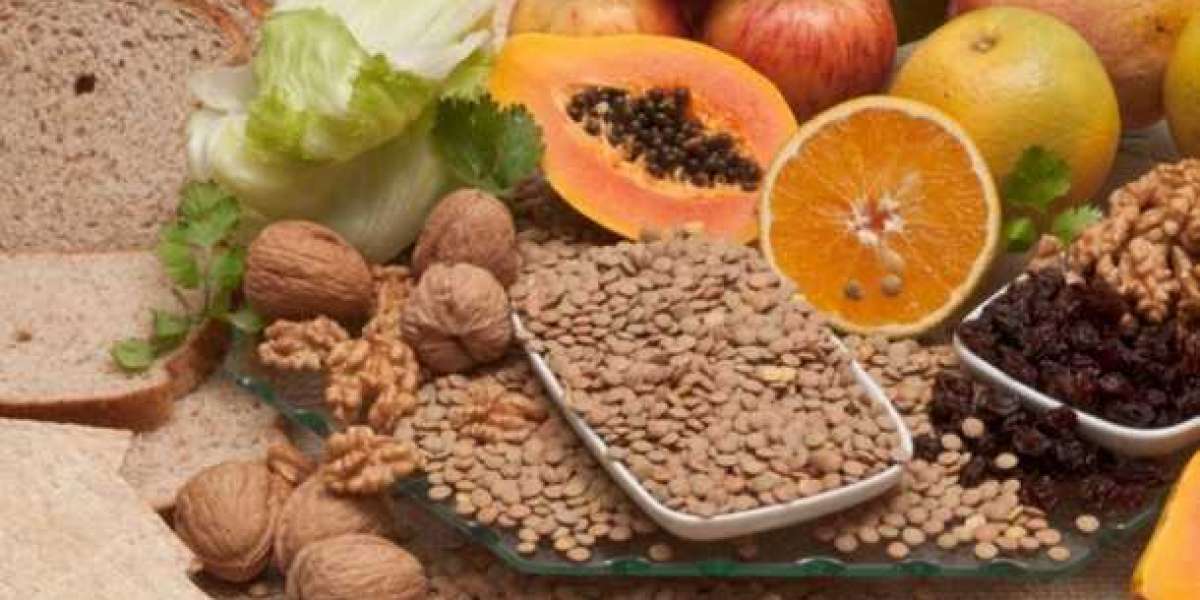Fibre is an essential part of our diet, playing a crucial role in maintaining digestive health and overall well-being. However, many people struggle to get enough fibre from their daily diet, leading to various health issues. This is where fibre supplements come into play. They offer a convenient way to boost fibre intake and help maintain a healthy digestive system. In this blog, we will explore everything you need to know about fibre supplements, including their benefits, types, and how to use them safely.
What Are Fibre Supplements?
Fibre supplements are products designed to provide an additional source of dietary fibre. They come in various forms, including powders, capsules, tablets, and chewable gummies, making them easy to incorporate into your daily routine. Fibre supplements can be classified into two main types: soluble and insoluble. Soluble fibre dissolves in water to form a gel-like substance, while insoluble fibre adds bulk to the stool and helps it pass more quickly through the digestive tract.
Fibre supplements are especially beneficial for those who have difficulty consuming enough fibre through food alone. They can help bridge the gap between the recommended daily fibre intake and what you actually get from your diet.
Benefits of Fibre Supplements
Fibre supplements offer a range of health benefits that can significantly improve your quality of life. Here are some of the key advantages:
Improved Digestive Health: Fibre helps regulate bowel movements and prevent constipation by adding bulk to the stool and making it easier to pass.
Regulation of Blood Sugar Levels: Soluble fibre can slow down the absorption of sugar, helping to control blood sugar levels, which is particularly beneficial for people with diabetes.
Aid in Weight Management: Fibre can help you feel fuller for longer, reducing the likelihood of overeating and aiding in weight loss or maintenance.
Lower Cholesterol Levels: Soluble fibre binds to cholesterol in the digestive system, helping to remove it from the body and lowering overall cholesterol levels.
Prevention of Constipation: Regular fibre intake can prevent constipation and promote regular bowel movements, reducing the risk of digestive disorders.
Types of Fibre in Supplements
Fibre supplements can be broadly categorized into two types: soluble and insoluble.
Soluble Fibre
Soluble fibre dissolves in water to form a gel-like substance. It is found in foods like oats, beans, apples, and citrus fruits. Some common types of soluble fibre used in supplements include psyllium husk and inulin.
Health Benefits of Soluble Fibre
- Helps lower cholesterol levels by binding to cholesterol and removing it from the body.
- Regulates blood sugar levels by slowing down the absorption of sugar.
- Promotes gut health by feeding beneficial bacteria in the digestive tract.
Insoluble Fibre
Insoluble fibre does not dissolve in water. It adds bulk to the stool and helps it pass more quickly through the digestive tract. Foods rich in insoluble fibre include whole grains, nuts, and vegetables. Cellulose and wheat bran are common types of insoluble fibre used in supplements.
Health Benefits of Insoluble Fibre
- Prevents constipation by adding bulk to the stool and promoting regular bowel movements.
- Reduces the risk of digestive disorders like diverticulosis and hemorrhoids.
- Supports overall digestive health by keeping the digestive system running smoothly.
Who Should Consider Taking Fibre Supplements?
Fibre supplements can be beneficial for a variety of individuals, particularly those who struggle to meet their daily fibre needs through diet alone. Here are some groups of people who might consider taking fibre supplements:
Individuals with a Low-Fibre Diet: People who do not consume enough fruits, vegetables, whole grains, and legumes may find it challenging to get the recommended amount of fibre from their diet alone.
People with Specific Health Conditions: Those with conditions like irritable bowel syndrome (IBS), high cholesterol, or diabetes may benefit from additional fibre intake to manage their symptoms and improve their overall health.
Busy Individuals: For people with hectic schedules who may not have the time to prepare high-fibre meals, supplements offer a convenient way to ensure they get enough fibre.
How to Choose the Right Fibre Supplement
Choosing the right fibre supplement can be overwhelming given the variety of options available. Here are some factors to consider:
Source: Look for supplements derived from natural sources like psyllium husk or inulin. These are generally well-tolerated and effective.
Form: Fibre supplements come in various forms, including powders, capsules, tablets, and gummies. Choose a form that fits your lifestyle and preferences.
Dosage: Check the recommended dosage and ensure it aligns with your dietary needs. Some people may need more or less fibre depending on their individual requirements.
Reading Labels: Pay attention to the ingredient list and avoid supplements with added sugars or artificial ingredients.
Consulting with Healthcare Professionals: Before starting any supplement, it's always a good idea to consult with a healthcare professional, especially if you have any underlying health conditions.
How to Use Fibre Supplements Safely
Using fibre supplements safely is crucial to avoid any potential side effects. Here are some tips:
Recommended Dosages: Follow the dosage instructions on the supplement packaging or as advised by a healthcare professional. Gradually increase your fibre intake to avoid digestive discomfort.
Importance of Staying Hydrated: Drink plenty of water when taking fibre supplements. Fibre absorbs water, and staying hydrated helps prevent constipation and other digestive issues.
Potential Side Effects: Some people may experience bloating, gas, or cramping when they first start taking fibre supplements. These side effects usually subside as your body adjusts. If they persist, consult with a healthcare professional.
Conclusion
Fibre is an essential nutrient that Fibre supplement plays a vital role in maintaining digestive health and overall well-being. Fibre supplements offer a convenient way to ensure you get enough fibre, especially if your diet is lacking. By understanding the different types of fibre, their benefits, and how to use supplements safely, you can make an informed decision that supports your health.





